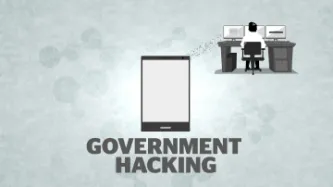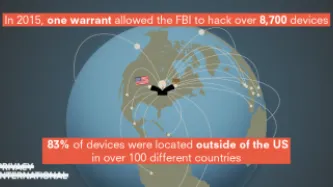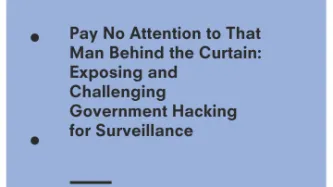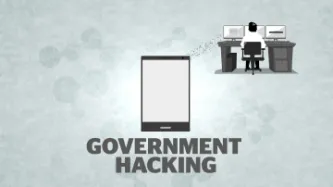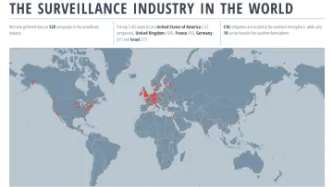Search
Content type: Impact Case Study
What HappenedOn 5 June 2013, The Guardian published the first in a series of documents disclosed by Edward Snowden, a whistleblower who had worked with the NSA. The documents revealed wide-ranging mass surveillance programs conducted by the USA’s National Security Agency (NSA) and the UK’s Government Communications Headquarters (GCHQ), which capture the communications and data of hundreds of millions of people around the world. In addition to revealing the mass surveillance programs of the NSA…
Content type: Long Read
As our four year battle against the UK government’s extraordinarily broad and intrusive hacking powers goes to the Supreme Court, we are launching a new fundraising appeal in partnership with CrowdJustice.
We are seeking to raise £5k towards our costs and need your help. If we lose, the court may order us to pay for the government’s very expensive army of lawyers. Any donation you make, large or small, will help us both pursue this important case and protect the future ability of…
Content type: News & Analysis
Privacy International notes a recent ruling issued by Italy’s Supreme Court (Corte di Cassazione) that addresses the need to limit government hacking powers for surveillance purposes and articulates required safeguards when hacking is conducted as part of a criminal investigation.
The ruling addresses the appeals of several individuals involved in a case of corruption; the appeals challenge irregularities in the collection of data as part of the criminal investigation, which resulted in the…
Content type: News & Analysis
This piece was originally published on Just Security.
Ten years ago, an FBI official impersonated an Associated Press reporter to lure and track a teenager suspected of sending in prank bomb threats to his school. To find him, the FBI agent, posing as a reporter, sent the teenager links to a supposed story he was working on, but the links were infested with malware that once clicked on quickly exposed the teen’s location. More recently, the FBI has seized and modified websites so…
Content type: Advocacy
Privacy and security are both essential to protecting individuals, including their autonomy and dignity. Undermining privacy undermines the security of individuals, their devices and the broader infrastructure. People need privacy to freely secure themselves, their information, and fully enjoy other rights.
A growing number of governments around the world are embracing hacking to facilitate their surveillance activities. When governments hack for surveillance purposes, they seek to…
Content type: Advocacy
Introduction
Why We Are So Concerned about Government Hacking for Surveillance
Scope of Our Safeguards
1. Legality
2. Security and Integrity of Systems
3. Necessity and Proportionality
4. Judicial Authorisation
5. Integrity of information
6. Notification
7. Destruction and Return of Data
8. Oversight and Transparency
9. Extraterritoriality
10. Effective Remedy
Commentary on each
1. Legality
2. Security and Integrity of Systems
3. Necessity and Proportionality
4.…
Content type: Press release
In a remarkable development in Privacy International's four year legal battle against the UK Government's powers to hack phones and computers on a massive scale, the UK Supreme Court has agreed to hear the London-based charity's case in December 2018.
Privacy International's case stems from a decision by the Investigatory Powers Tribunal (a specialised court set up to hear complaints against government surveillance, including surveillance carried out by the UK intelligence agencies) finding…
Content type: Long Read
If you operate an internet company in Russia, you aren’t necessarily surprised to one day open the door to someone, grasping in one hand a bundle of wires and in the other a letter from a government agency demanding access to your servers, with a black box wedged under one arm.
Internet companies in Russia are required by law to store the content of users’ communications for six months and the metadata of users’ communications for three years, essentially meaning that what a person does…
Content type: Examples
In June 2016, National Security Agency deputy director Richard Ledgett told a conference on military technology conference that the agency was researching whether internet-connected biomedical devices such as pacemakers could be used to collect foreign intelligence. Ledgett identified the complexity of the Internet of Things as both a security nightmare and an opportunity for signals intelligence. However, the NSA prioritises its resources by focusing solely on technology used by its opponents…
Content type: Examples
In 2015, the Canadian Department of National Defence issued a procurement request for a contractor who could find "vulnerabilities and security measures" in a 2015 pick-up truck whose model and make were not specified and "develop and demonstrate exploits" for the military. The contractor was to find as many exploits as possible by analysing every part of the truck, demonstrate that the hacks could actually hurt someone or enable an attacker to gather information, and deliver explicit source…
Content type: Impact Case Study
What is the problem
For over two decades we have been documenting an alarming use and spread of surveillance. It is no longer just the wars on terror or drugs or migration that is driving this trend. The management of health crises and distribution of welfare regularly are among others being used to justify this turn to increasingly invasive forms of surveillance. From country to country we see the same ideas and the same profiteers expanding their reach.
When we first released our report on…
Content type: Advocacy
On 6 March 2018, Privacy International participated in an interactive dialogue with the UN Special Rapporteur on the right to privacy at the 37th Ordinary Session of the Human Rights Council in Geneva. We highlighted the growing trend of governments embracing hacking to facilitate their surveillance activities, and recommended the development of a human rights analysis of government hacking for surveillance purposes, with the view to forming specific…
Content type: Explainer
What is the Global Surveillance Industry?
Today, a global industry consisting of hundreds of companies develops and sells surveillance technology to government agencies around the world. Together, these companies sell a wide range of systems used to identify, track, and monitor individuals and their communications for spying and policing purposes. The advanced powers available to the best equipped spy agencies in the world are being traded around the world. It is a…
Content type: Press release
Privacy International and Open Rights Group have submitted a response to the Consultation on establishing a UK Privacy and Civil Liberties Board.
Content type: Press release
On 15 March 2017, the Italian Senate voted on a Bill, put forward by Justice Minister Andrea Orlando, that will reform the criminal justice system, including amending the Code of Criminal Procedure. Among the many provisions contained in DDL Orlando, currently pending approval by the Italian House of Representatives, the Government is mandated to regulate, via a legislative decree, the utilisation of malware (commonly referred to as ‘Trojans’ in Italian discourse) to engage hacking for criminal…
Content type: Key Resources
Introduction
Why We Are So Concerned about Government Hacking for Surveillance
Scope of Our Safeguards
1. Legality
2. Security and Integrity of Systems
3. Necessity and Proportionality
4. Judicial Authorisation
5. Integrity of information
6. Notification
7. Destruction and Return of Data
8. Oversight and Transparency
9. Extraterritoriality
10. Effective Remedy
Commentary on each
1. Legality
2. Security and Integrity of Systems
3. Necessity and Proportionality
4.…


